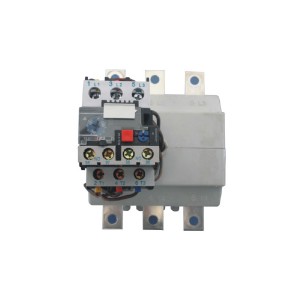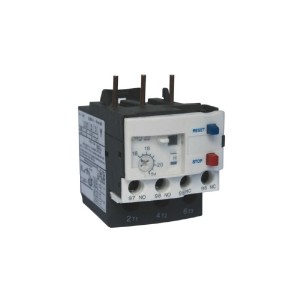Thermal Relay
-

Thermal overload relay CELR2-F200
CELR2-F200(LR2-F200)
CELR2-F series relays are suitable for AC 50/60Hz, rated current up to 630A, voltage up to 690V circuits, used for long-term continuous operation motor protection overload and phase separation, this relay has temperature compensation, action indication, manual And automatic reset and other functions.
-

Thermal overload relay CER2-D13
CER2-D13(LR2-D13)
This series of thermal overload relays is suitable for 50/60Hz, rated insulation voltage 660V, and rated current 0.1~93A circuits, and is used for phase failure protection when the motor is overloaded.
This relay has different mechanisms and temperature compensation, can be inserted into LC1-D series, AC contacts, it is the most advanced relay in the world in the 1990s. The product complies with the IEC60947-4 standard.
-

Thermal overload relay CER2-F53
CER2-F53(LR9-F53)
This series of thermal overload relays is suitable for 50/60Hz, rated insulation voltage 660V, and rated current 200-630A circuits, and is used for phase failure protection when the motor is overloaded. This relay has different mechanisms and temperature compensation, can be inserted into LC1-F series, AC contacts, and the product complies with IEC60947-4 standard.
-

Thermal overload relay CERD-13
CERD-13(LRD-13)
This series of thermal relays are used in circuits with 50/60Hz, rated insulation voltage 660V, and rated current 0.1~140A, as motor overload and phase failure protection. This relay has different mechanisms and temperature compensation, can be inserted into CEC1-D series, AC contacts, and the product complies with lEC60947-4 standard.
-

GTH-22 Thermal Overload Relay
GTH-22(GTK-22)
This series of thermal overload relays is mainly used in circuits with AC 50/60Hz, rated insulation voltage 660v, and rated current 0.1~85A, as motor overload and phase failure protection. This relay has different mechanisms and temperature compensation, can be inserted into CEC1-D series, AC contacts, this product conforms to lEC60947-4 standard.